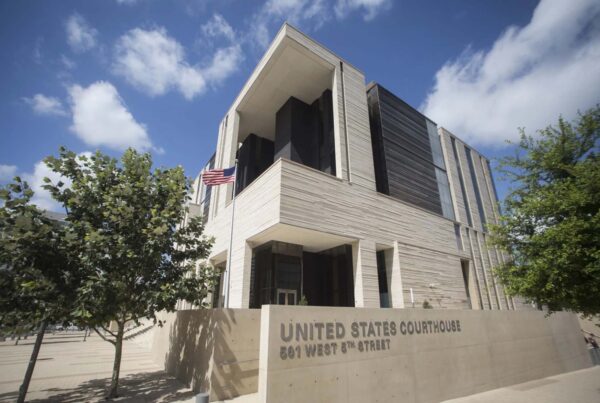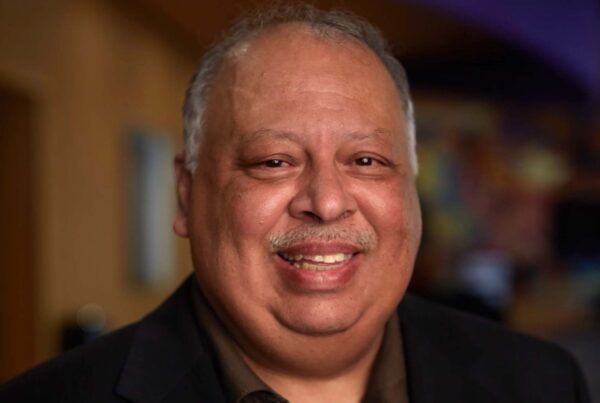Around five million Americans are adopted. But unless it’s been part of your life in some way, you might not realize that adopted people often struggle to gain access to things that everyone else seems to have and may take for granted: medical history, original birth certificates and even citizenship.
This is one reason why the Adoptee Rights Law Center and the Texas Adoptee Rights Coalition has designated for an annual big push to make changes on those fronts, known as the Adoptee Rights National Week of Action.
To learn more about what the goals of this week are, and the legislative measures advocates hope to get passed, Texas Standard spoke with Gregory Luce, founder of the Adoptee Rights Law Center and Adoptees United. He’s also an adopted person himself. Listen to the story above or read the transcript below.
This transcript has been edited lightly for clarity:
Texas Standard: Tell us a little bit more about the goals and focus of the Adoptee Rights National Week of Action. How long has this been going on?
Gregory Luce: This is the third year. We try to highlight issues that are impacting adopted people across the United States. And you mentioned some of the issues that we address: original birth certificates and U.S. citizenship is a big one that essentially is the part of the action we are having all week.
As someone who’s gone through the passport process recently, believe me, I have a little bit of a sense of how this can affect everyday events or things that you have to go through. But could you give us some specific examples of the sorts of things that people who are adopted face as a result of not having access to the things we take for granted?
Yeah, passport is a really good example. Sometimes even if you’re born in the U.S. and adopted in the U.S., your birth certificate is sealed and then a new one is issued. And if that new one is issued a year or more after the birth, you may get turned down by the U.S. passport office because they need one that’s filed pretty quickly after the birth. But a bigger issue really is for adopted people who are adopted from other countries, immigrate to the U.S. with their adoptive parents who are U.S. citizens and find out many, many years later that they are in fact not U.S. citizens, because there’s a loophole in federal law that has denied that. And so that’s one of the main issues that we’re facing in this National Week of Action.
» RELATED: Texas adoptees lose access to their original birth records. Getting them back is a challenge
You’ve sort of made a focus this year on the Equal Citizenship of Children Act. Could you say more about what that is and why you consider it so necessary?
Yeah. This is a bill that has been bouncing around Congress now for about 10 years and it’s fixing a massive loophole in current law that did not provide U.S. citizenship automatically to older adoptees; those who were essentially born prior to 1983. And so I have a number of clients myself, representing them, who found out – even in their sixties – that for the past 50 or so or more years believed that they’re U.S. citizens, when in fact they’re not. And they often found out when they applied for a passport and were denied because they didn’t have the documentation. So this Equal Citizenship for Children Act would fix that by making citizenship available to anyone who’s been adopted by U.S. citizen parents going back to 1941.
First of all, why 1983, I believe it was, you said that this act would amend? And furthermore, you mentioned this has been kicked around Congress for some time. What’s been the pushback?
The pushback – I’ll take that one first – the pushback really is if anything, it mentions immigration, which really this involves. It gets kicked around Congress like a political football and then adoptees, or intercountry adoptees, are that football that has been kicked around. And there is no immigration reform happening on a federal level and so that just doesn’t get passed because it’s considered an immigration issue, as opposed to family policy or adoption issue.
What about 1983? What’s that about?
That’s about they did not want to provide citizenship to people who already were adults. They were 18 or over. And so that cut out tens of thousands of adoptees who came to the U.S., adopted by U.S. citizen parents, and you know never naturalized through the processes that were available. So everyone thought they were citizens. Their parents thought the kids were citizens because they were adopted by U.S. citizens. But, you know, come 40, 50 years later, they find out they’re not. And then you’ve got a problem of getting all the documentation to prove it.
Well, obviously immigration is a huge issue here in Texas. Any sense of where Texas lawmakers stand on this bill?
Well, it should be a bipartisan issue. It typically is. It’s typically introduced by Republicans and Democrats in Congress. There’s only one Texas rep right now, Rep. (Greg) Casar, who is a co-sponsor of the Equal Citizenship for Children Act. I imagine there should be more. And that’s the focus of the National Week of Action – to get more representatives and senators signed on to this bill because it’s necessary.
Do you have a sense of whether or not this year’s going to make a difference?
It’s really hard to predict, but partially it’s going to be difficult because it’s the presidential election in 2024 and congressional elections as well. And whether an immigration issue, like this one is categorized, is going to move at all is really up in the air.















